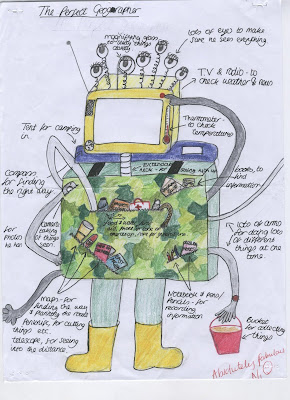 SafeShare TV is a useful site, as it allows you to view YouTube videos without the distraction of seeing the comments and other related clutter, and also to crop the videos...
SafeShare TV is a useful site, as it allows you to view YouTube videos without the distraction of seeing the comments and other related clutter, and also to crop the videos...
A resource for geography teachers, which will grow to contain a range of strategies to support them in all aspects of their work.
Thursday 24 December 2009
SafeShare TV
 SafeShare TV is a useful site, as it allows you to view YouTube videos without the distraction of seeing the comments and other related clutter, and also to crop the videos...
SafeShare TV is a useful site, as it allows you to view YouTube videos without the distraction of seeing the comments and other related clutter, and also to crop the videos...
Thursday 10 December 2009
Literacy in Geography
Isle of Islay – Iain Banks' "Espedair Street", Ferguslie Park, Paisley
London – "Bone People" – Kerry Hulme
Bedfordshire – "Waterland" – Graham Swift - description of the Fens
Newcastle – Wainwright’s Guides to SW Lakes
Portsmouth – "Touching the Void" – Joe Simpson – mountain landscapes
Sheffield – "Jamaica Inn" – Daphne du Maurier – moorland in Cornwall
W. Midlands – "Sunset Song" – Lewis Grassic Gibbon
Brighton – Sebastian Faulks – "Birdsong" and "Charlotte Gray"
Ipswich – "Around Ireland with a Fridge"
Ashford, Kent – Paul Theroux – "The Great Railway Bazaar"
Scotland - "The Lord of the Rings"
On the same morning, David Rogers was using John Davitt's Learning Event Generator to work with students on the Copenhagen Climage change conference, and challenged them to create some Army chats, which he then shared through Twitpic...
 Thanks to Dale Banham and all the delegates and presenters for their work on the day.
Thanks to Dale Banham and all the delegates and presenters for their work on the day.
Friday 4 December 2009
Assessment at KS3 - what do we think of it so far ?
Thursday 3 December 2009
Google Earth Survey Results

A recent survey conducted on behalf of Digital Explorer shows that Google Earth has a significant positive impact on teaching and learning.
Wednesday 2 December 2009
Quality Geography Conferences
 Work included in portfolio for Quality Mark submission...
Work included in portfolio for Quality Mark submission...There are two events planned for March. For more details see the GA WEBSITE.
Booking now available...
Aims and outcomes
Presenters
Quality Geography: Challenging and supporting student learning
Leszek Iwaskow, Ofsted's National Adviser for Geography
10:15-10:30 Refreshment break